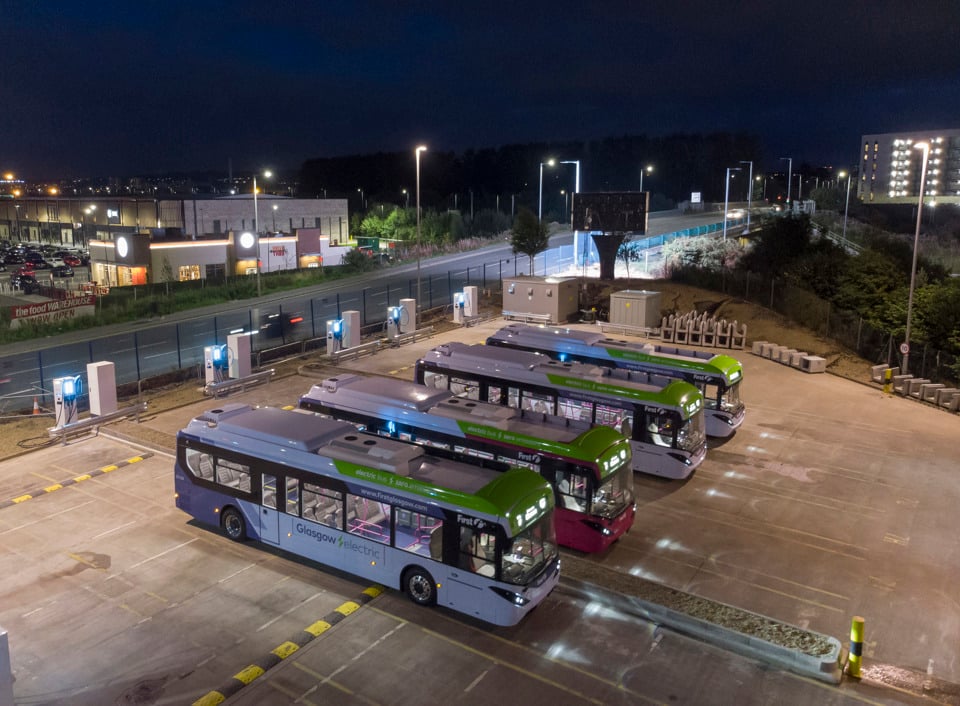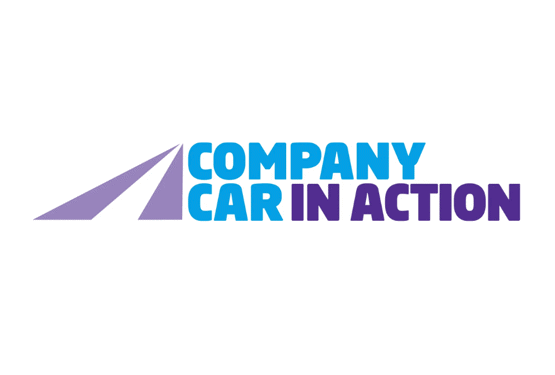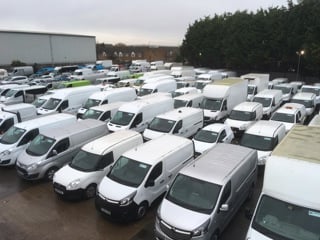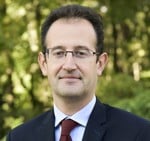First Bus will allow commercial fleets to access its electric vehicle (EV) charging infrastructure at depots across the UK.
The bus operator has partnered with Paua for the launch of Paua Share – a new shared depot charging service developed off the back of an Innovate UK project, which was funded by the Department for Transport (DfT).
Faizan Ahmad, director of decarbonisation at First Bus, said: “Sharing depot infrastructure unlocks enormous potential for commercial fleets, accelerating the shift to zero-emission transport while making smarter use of existing assets.
“First Bus are proud to have been pioneers in this space and further innovation and collaboration, as showcased here by our partnership with Paua, are key to building a truly integrated, low-carbon transport network.”
The introduction of shared depot charging, with sites suiting commercial vans and trucks, forms a key pillar in Paua’s commercial vehicle charging network expansion plans.
It says that it can help overcome one of the biggest hurdles in fleet electrification – access to suitable, high-powered and secure charging infrastructure.
“It’s a win-win for sustainability and commercial efficiency,” Andy Gwilliam, product manager at First Bus
The 11 First Bus depots are equipped with high-powered EV chargers ranging from 150kW to 350kW, which is generated by renewable power, with sites strategically located across the UK to support operational flexibility and maximise vehicle uptime.
Niall Riddell, CEO and co-founder of Paua, said: “We are delighted to be working with First Bus on this groundbreaking initiative.
“We envisage a European wide network of shared depots as we build Europe’s lowest cost commercial fleet charging network.”
Paua first started developing the concept of sharing EV charging facilities after taking part in an EV rally in 2023.
First Bus Glasgow was one of the sites used to charge multiple EVs taking part in the event.
Paua then worked with Cenex, Suffolk County Council and Oxfordshire County Council in the DfT-funded project to develop the mechanisms for depot sharing, successfully deploying the concept with a number of partners across several sites.
The project, it says, showed that there was a range of benefits for depots, including giving operators the potential to earn revenue from underused charging infrastructure by making their chargers available to vetted commercial fleets during off-peak hours.
Meanwhile, the commercial fleets using the sites benefit from having access to secure, cost-effective charging at trusted commercial depot locations — ideal for shift-based operations or overnight parking.
Paua says that it also gives fleets confidence to scale EV adoption with charging locations built for commercial vehicle needs.
The partnership with First Bus, which has more than 1,000 zero-emission buses in operation across the country, is the first step in commercialising its solution.
Paua Share starts with matchmaking a fleet with a depot. Then the fleet agrees any required sharing terms with the depot which includes issues like site health and safety, access hours or specific site rules.
Drivers can then navigate to the site with dedicated information in the Paua app, arrive at the site, charge with their Paua card or app.
This charging is all recorded in the Paua fleet manager dashboard and costs are centralised for the fleet.
Jeremy Woolley, product manager for Paua Share, said: “This project with First Bus is a powerful example of how shared infrastructure can unlock new possibilities for electric fleets.
“First Bus have shown real leadership in opening up their depots, and it’s been a privilege to work alongside a partner so committed to innovation and sustainability.
“Together, we’ve created something that can scale — and that’s what the future of fleet electrification needs.”
Andy Gwilliam, product manager at First Bus, explained that by opening up its depot infrastructure to third-party fleets it was making “smarter use of underutilised assets” and helping to accelerate the transition to zero-emission transport beyond its own operations.
“It’s a win-win for sustainability and commercial efficiency,” he said. “Paua brought real agility and technical expertise to this project.
“Their innovative approach to fleet charging and platform integration helped us to turn an ambitious concept into a functioning solution — one that’s adding value for commercial operators.”
The launch of Paua Share comes in the wake of the Association of Fleet Professionals (AFP) appointing technology start-up Evata to develop its new platform which will allow AFP members to share their EV charging facilities.
It is looking to add more fleet operators to the new shared charging service, both potential charging providers and users.























Login to comment
Comments
No comments have been made yet.